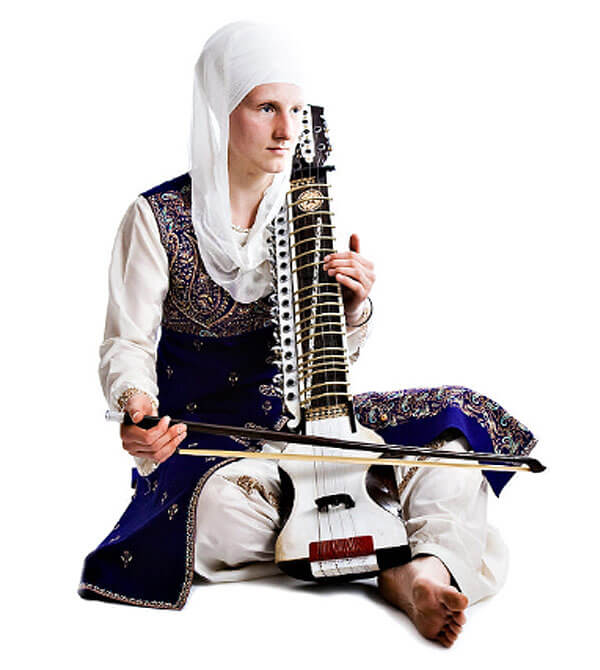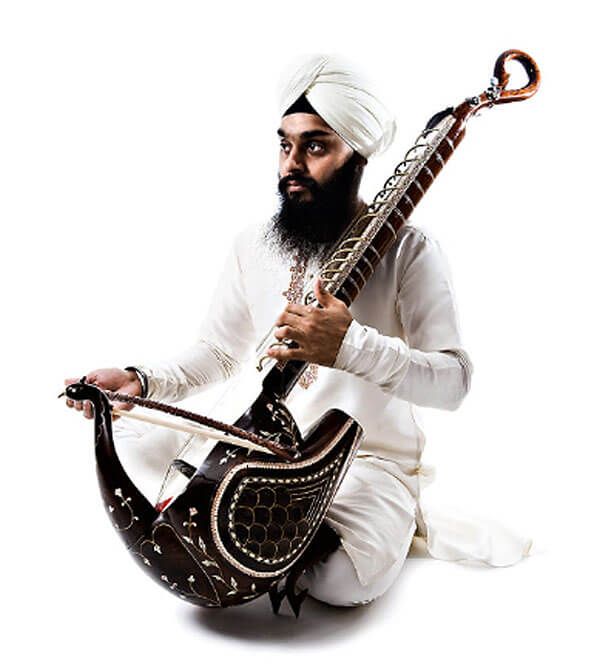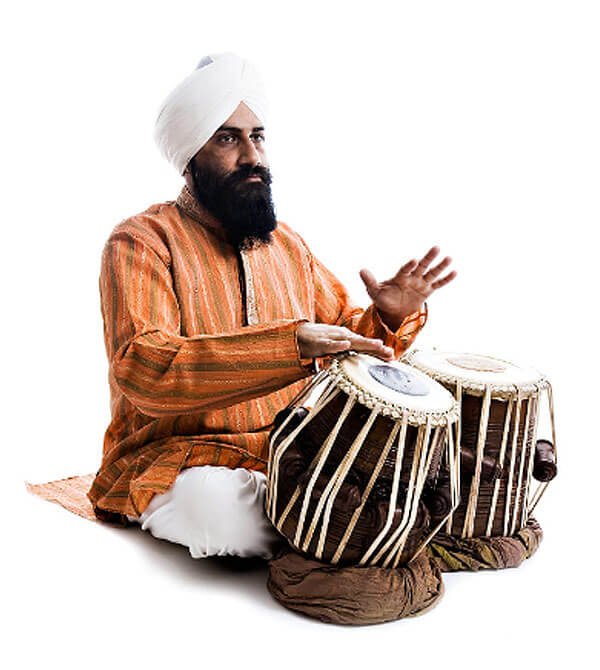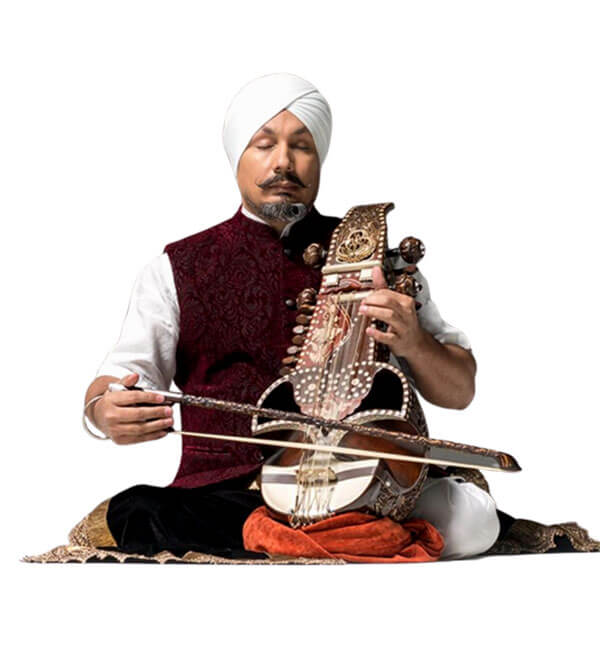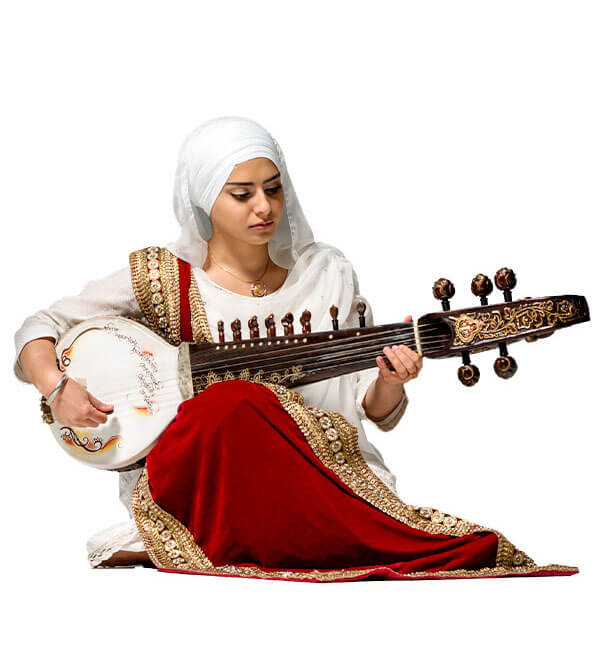Instruments → Sarangi
Sarangi

WOOD
Indian tun (similar to red cedar)
BRIDGE
Made of rosewood. Traditionally ivory or bone
SKIN
Natural gut strings
STRINGS
Metal
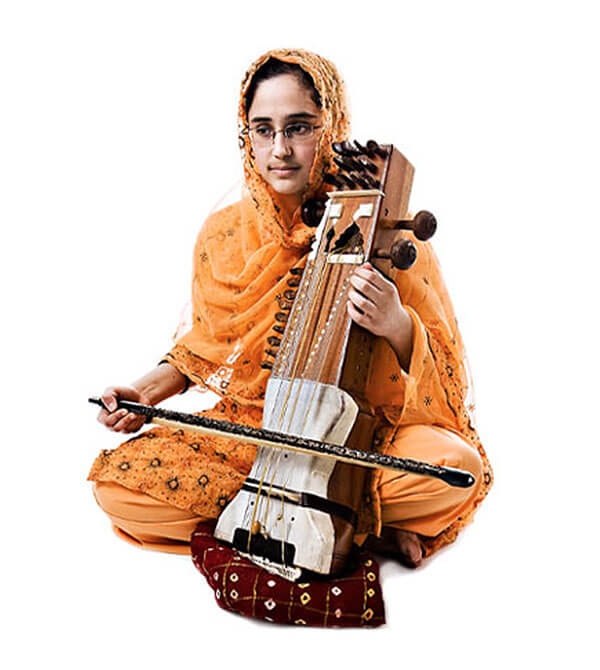
100 colours of the soul
The Sarangi is an enchanting instrument which dates back to 5000BC. It was said to have been created by the great scholar Raavan. The name ‘Sarangi’ is translated as 'one hundred colours'. Played with a bow, the Sarangi is known as the mother to all stringed instruments, and as the instrument whose sound is closest to that of the human voice.
This astonishing instrument was created to sing the praise of the Creator. It was originally used for this purpose, but less so as time went on. In the court of the sixth Sikh Guru, Guru Hargobind, it was brought back into the spiritual arena and used to sing the 22 ballads (vaars) from the Guru Granth Sahib. There is a huge difference between a Dhadd Sarangi, or Tota, which is used for Dhadi vaars (folk-ballads), and this Sarangi which is also known as a classical or full-size Sarangi. The purposes and sounds of these two instruments distinguish them clearly from one another.
Social
Be the movement
Receive updates on events, courses, and meditations.
© 2024 Raj Academy Conservatoire
Registered 501(c)(3) non-profit organisation in the USA (EIN 30-0793084) and a not-for-profit company limited by guarantee in the UK (company number 07074898).
Privacy & Policy | Terms & Conditions | All Prices are in $USD
